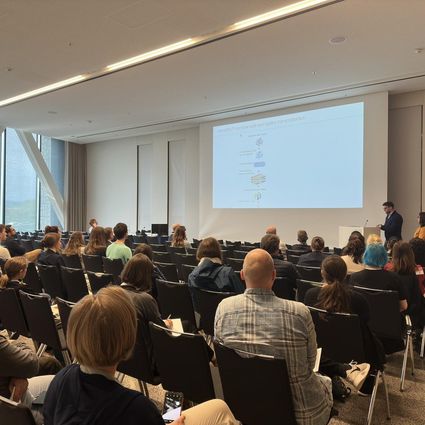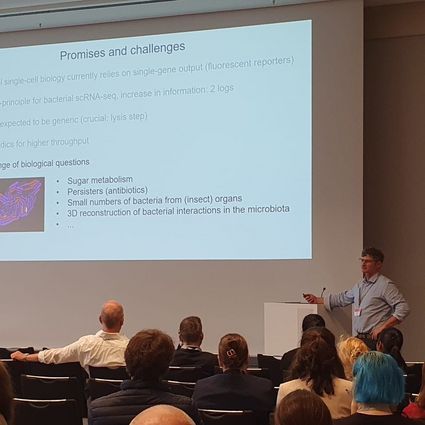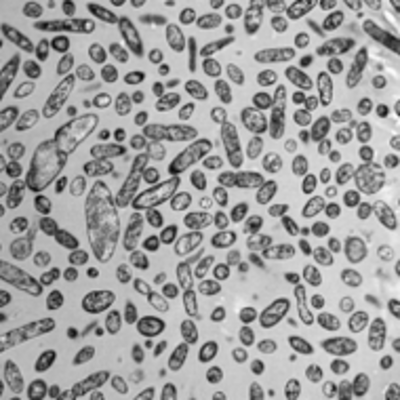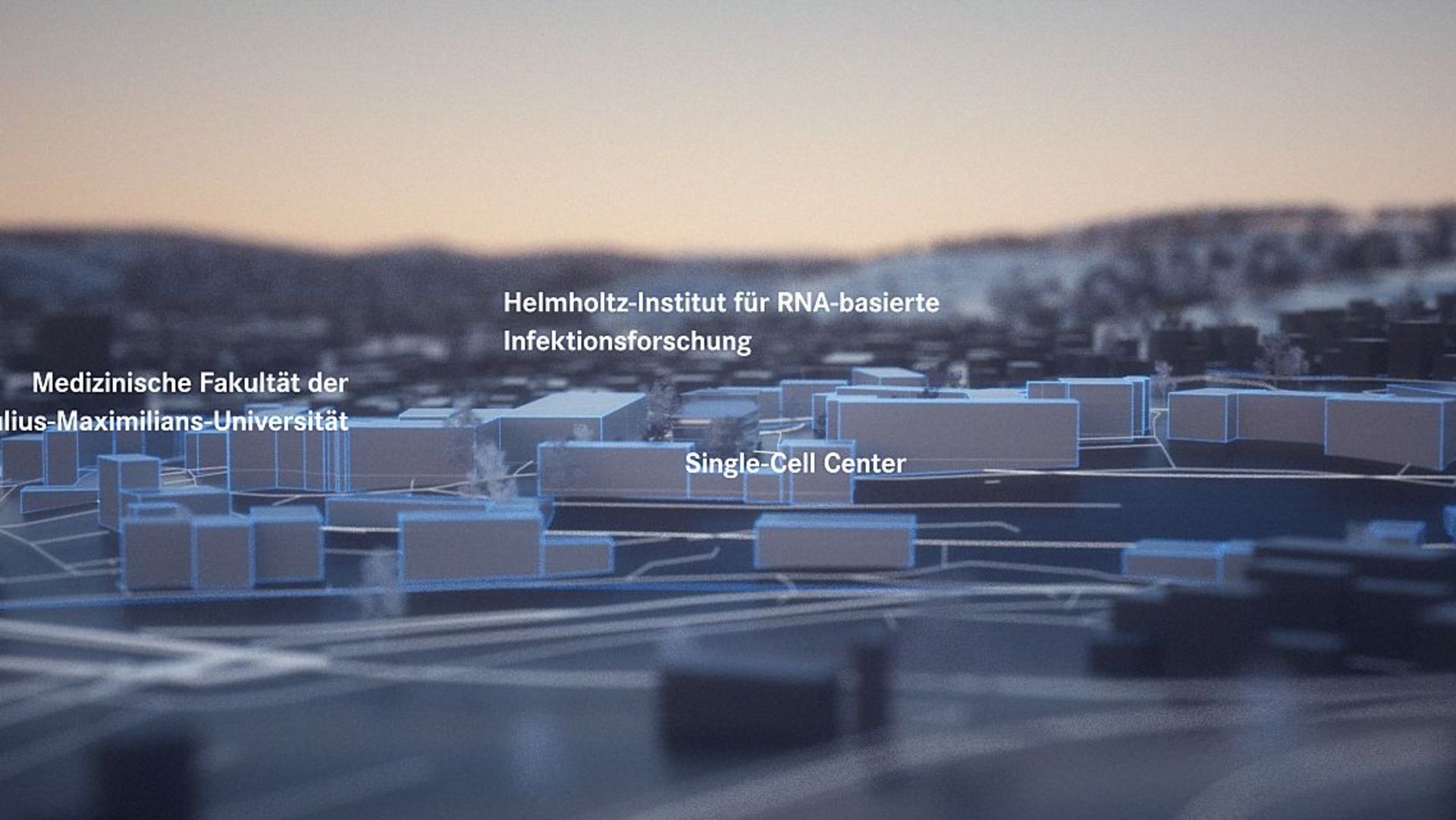
Center for Microbial Single-cell RNA-seq (MICROSEQ)
A DFG-funded center dedicated to advance single-cell RNA sequencing in microbiology and infection research.
MICROSEQ will develop generic protocols for rapid, cost-effective and high-throughput bacterial scRNA-seq, provide state-of-the-art data analysis and visualization strategies, and offer training opportunities for microbiologists.
Cutting-Edge Protocols
Training Opportunities
Data Analysis Tools
MICROSEQ is internationally unique in its focus and the collective expertise of the involved scientists, and thereby complements ongoing efforts by DFG to foster the application of NGS technology at German universities.
Publication Highlights
Outreach & Events
Workshop at DGHM & VAAM 2024
At the 7th Joint Microbiology & Infection Conference of the German Society for Hygiene and Microbiology (DGHM) and the Association of General and Applied Microbiology (VAAM) from June 2-5, 2024, in Würzburg, MICROSEQ team leader Jörg Vogel introduced the DFG competence center for microbial single-cell RNA-seq and gave an overview of bacterial scRNA-seq methods.
Projects
1. Transcriptional profiles underlying morphological heterogeneity in Bacteroides thetaiotaomicron
Genetically identical bacteria can be phenotypically diverse. This is exemplified in the Bacteroidota, a predominant bacterial phylum of the human gut microbiota. However, the molecular basis of morphological heterogeneity in Bacteroidota species and potential functional consequences thereof are poorly understood. In this project, we develop a sensitive transcriptomics approach to chart cell size-related gene expression patterns. The protocol builds on the MATQ-seq method that we here optimize for B. thetaiotaomicron, combined with CRISPR/Cas-based depletion of ribosomal sequences. We demonstrate that our transcriptomic pipeline accurately quantifies gene expression on a genomic scale. Its application to sort-collected B. thetaiotaomicron cells of different size enables us to derive morphological marker genes whose expression is enriched in bacterial cells of defined sizes.
These morphological marker genes—encoding e.g. proteins involved in cell cycle, primary and secondary metabolism, and membrane-associated processes—are validated using single-molecule fluorescence in-situ hybridization. As microbial heterogeneity has become an emergent theme in microbiota research, this study may serve as a blueprint to link different phenotypes with functions in ever-increasing resolution.
2. Understanding heterogeneous expression in the anaerobe Clostridioides difficile
Understanding the cellular responses in pathogenic bacteria during infection is crucial for developing new therapeutic options. We investigate how heterogeneous expression of virulence factors contributes to clinically relevant phenotypes in the obligate anaerobe, gram-positive pathogen Clostridioides difficile. During infection, C. difficile cells choose to initiate toxin production or sporulation in a highly heterogeneous way, with individual subpopulations producing either or both responses. This phenotypic heterogeneity is likely crucial for successful intestinal colonization by C. difficile and for its transmission to new hosts. However, the major factors that determine the fate of a single bacterial cell are not well understood. We aim to examine which extracellular signals influence the decisions that happen inside of a single cell and what cellular states are associated with the different virulence programs of C. difficile. Bacterial single-cell RNA-sequencing helps us to identify the transcriptional and posttranscriptional regulators that shape these decisions, and to characterize how they contribute to a successful C. difficile infection.
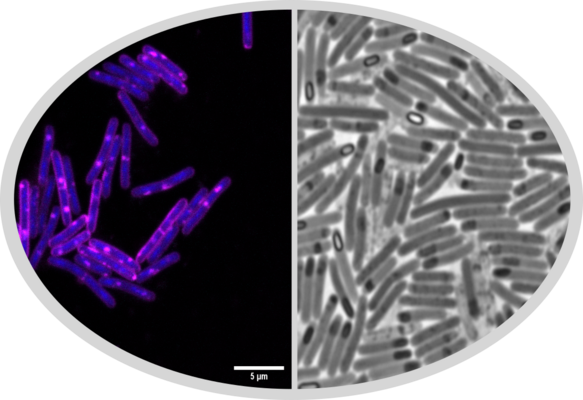
Photo: Franziska Faber

